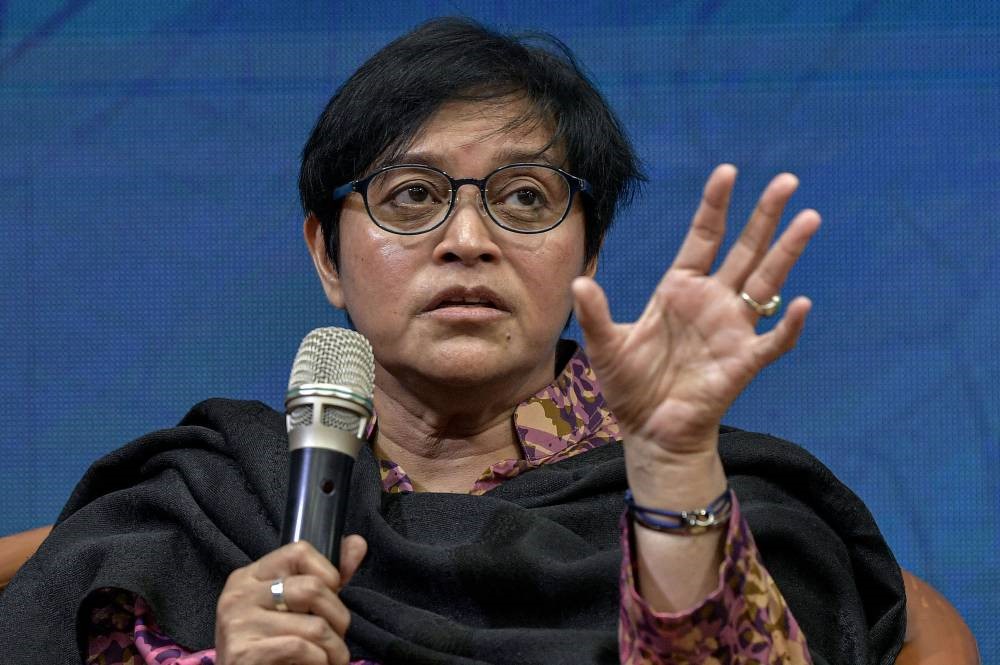The Paris Court of Appeal has jurisdiction over the Sulu arbitration because Gonzalo Stampa—later convicted in Spain—relocated the seat of arbitration from Madrid to the French capital before issuing the controversial US$14.92 billion award. Image Source: Shutterstock
On July 7, 2025, the Paris Court of Appeal is expected to deliver a final ruling on the legality of the US$14.92 billion arbitration award granted by former arbitrator Gonzalo Stampa to individuals claiming descent from the last Sultan of Sulu.
While the Sulu claimants have faced legal setbacks in Spain, France, the Netherlands and Luxembourg, the Paris Court of Appeal’s anticipated annulment of the award is likely to shape the final legal fate of the case across Western jurisdiction and could influence how third-party funders and governments treat politically sensitive investor-state arbitration in the future.
Why does the Anticipated Full Annulment of the Award Matter?
Although French courts have previously ruled that Spanish arbitrator Gonzalo Stampa lacked jurisdiction to hear the multibillion-dollar case brought by the heirs of the Sulu sultanate, the final arbitration award he issued in 2022 remains legally intact. This is because, under French law, a ruling on jurisdiction and the formal annulment of an arbitration award are two separate legal processes.
Under French law, a ruling on jurisdiction and the formal annulment of an arbitration award are two separate legal processes.
As a result, while France has revoked recognition of Stampa’s authority and dismissed earlier procedural rulings, it has not yet addressed the validity of the final $14.9 billion award itself — a decision now scheduled for July 7.
The outcome will carry broader implications across Western legal systems. Under the New York Convention, the recognition or rejection of an arbitral award’s enforcement is assessed independently in each country and often separately from the validity of the award itself. As long as the award remains legally alive, the Sulu claimants retain the ability to seek enforcement — and must be met with separate defenses in every jurisdiction they approach.
As long as the award remains legally alive, the Sulu claimants retain the ability to seek enforcement — and must be met with separate defenses in every jurisdiction they approach.
Malaysia has successfully challenged enforcement attempts in courts such as those in the Netherlands and Luxembourg. However, these reversals have so far focused on procedural defects and bad faith by the claimants, rather than a conclusive ruling on the award’s legitimacy.
If the Paris Court of Appeal annuls the award on July 7, as many expect, it would provide a definitive ruling on the award’s validity — and may render future enforcement actions by the claimants groundless and dead on arrival in most Western jurisdictions.

Azalina Othman Said, a senior Malaysian minister, has been overseeing Malaysia’s response to the Sulu Arbitration. Image Source: Bernama
✉ Get the latest from KnowSulu
Updated headlines for free, straight to your inbox—no noise, just facts.
We collect your email only to send you updates. No third-party access. Ever. Your privacy matters. Read our Privacy Policy for full details.
Could the Ruling Favor the Claimants?
While less likely, a ruling in France that annuls limited parts of the arbitration process, could leave the core $14.92 billion award standing and open the floodgates for continued hearings on enforcement in more courtrooms across Europe to significant legal costs for Malaysia, the European courts, and the Sulu claimants.
Even more improbable given prior rulings is a judgment recognizing the award. This would fully revive enforcement possibilities in Europe. It could also embolden efforts to seize Malaysian state-linked assets abroad, reigniting a diplomatic crisis and strengthening calls from fringe political factions in the Philippines to reassert dormant claims over Sabah.
Such a precedent could enable other private actors like the Sulu claimants—or state actors—to revive historical issues for similar financial gains.
Could the Claimants Explore Enforcement in Non-EU Jurisdictions?
The legal team representing the Sulu claimants may consider enforcement strategies beyond the European Union.
Such a shift would be a calculated move. Legal experts note that some African, Latin American, and certain Asian jurisdictions have historically exhibited varying levels of openness to the recognition of arbitral awards, particularly those with geopolitical or postcolonial dimensions. While no new filings outside Europe have been confirmed, the uneven enforcement landscape under the New York Convention could, in theory, be leveraged to increase pressure on Malaysia by targeting state-linked assets or interests abroad.
Paul Cohen, the lead lawyer for the claimants, has publicly alluded to this possibility. In interviews, he has spoken of “exploring new jurisdictions where courts may be more arbitration-friendly,” suggesting a willingness to test enforcement wherever viable legal routes exist.
The lead lawyer for the claimants has alluded to exploring new jurisdictions where courts may be more arbitration-friendly.
This potential strategy, if pursued, would face significant obstacles. Enforcement depends not only on legal frameworks but also on political realities: the host country’s diplomatic ties with Malaysia, its interpretation of public policy, and its appetite for involvement in a highly contentious, postcolonial legal dispute.
Another major challenge for the Sulu claimants is finding a jurisdiction where Malaysia holds enough seizable assets to make enforcement worthwhile — a factor that likely influenced their original decision to pursue arbitration in Europe. This financial calculus is critical for both the claimants and their litigation funders, who have incurred substantial costs throughout the arbitration process. As such, while further enforcement efforts remain possible, a legal and financial gamble outside Europe is far from guaranteed.
Is there Money to Continue Financing the Claimants’ Legal Battle?
While little is known of the Sulu claimants, they are private citizens with limited means to initiate or sustain a legal battle of this scale. The arbitration thus far has been bankrolled by the British litigation funder Therium Capital Management.
Therium’s business model, like that of other litigation funders, hinges on taking a significant share of any award or settlement it helps secure. In return for covering the Sulu claimants’ legal costs—reportedly around US $20 million—it stands to earn a potentially large return, but only if the award is upheld and enforced.
While the exact terms of the funding agreement remain confidential, litigation funders can earn returns of up to 300% in successful cases, according to industry estimates. If the claim fails, however, Therium will absorb the financial loss.
While the exact terms of the funding agreement remain confidential, litigation funders can earn returns of up to 300% in successful cases.
Whatever the outcome of the July 7th hearing, the future of litigation financing in this dispute looks uncertain with indications of financial difficulty at Therium. This has culminated in its acquisition by Fortress Investment Group, a U.S.-based global asset manager specializing in distressed assets and complex financial situations.
Fortress has made no public statements indicating a commitment to continue funding the Sabah dispute. Industry observers widely believe that Fortress intends to wind down Therium’s involvement rather than inject fresh capital. This position places serious constraints on the claimants’ ability to sustain the costly, drawn-out legal battle ahead.
Fortress has made no public statements indicating a commitment to continue funding the Sabah dispute.
Even if the Paris Court of Appeal were to grant the claimants a partial legal victory on July 7, the pervasive judicial rejection of the arbitration award across Europe, coupled with the criminal conviction of arbitrator Gonzalo Stampa for contempt of court, could deter Fortress from escalating its financial exposure. Fortress must weigh not only the financial risks but also the reputational hazards of backing a highly controversial case with a history of legal setbacks.
The implications for the claimants are profound: without robust, sustained litigation funding, pursuing enforcement actions—especially in expensive or complex foreign jurisdictions—becomes considerably more difficult. Funding challenges may limit their ability to explore non-EU enforcement venues and reduce the scope of diplomatic lobbying.
A Cautionary Tale at the Crossroads of Sovereignty and Litigation Finance
The Sulu arbitration has become a turning point for both the litigation funding industry and the international arbitration system. What began as a claim rooted in a 19th-century lease has evolved into a high-stakes legal saga, testing the boundaries of sovereignty, international law, and the role of private funders. With Therium’s withdrawal and Fortress showing limited appetite to continue, the case now also reflects a broader reckoning within litigation finance.
With Therium’s withdrawal and Fortress showing limited appetite to continue, the case now reflects a broader reckoning within litigation finance.
It has exposed key vulnerabilities: the difficulty of enforcing awards across fragmented jurisdictions, the reputational and political risks of sovereign disputes, and the sheer cost of mounting such transnational legal campaigns. Critics argue the casealso demonstrates how mechanisms meant to protect commercial interests can be co-opted into financial strategies aimed at sovereign states.
The Paris Court of Appeal’s ruling on July 7 will be pivotal. If the US$14.92 billion award is annulled, the Sulu arbitration saga may reach its end—at least in Europe. For Malaysia, it would mark a legal and diplomatic victory. For the claimants and their remaining backers, it could spell the collapse of their legal strategy and an uncertain financial future. Whatever the outcome, the case will leave a lasting mark on the evolving relationship between arbitration, funding, and state sovereignty.
REFERENCES
Abd Rahman, K. P., & Rahman, F. A. (2022, November 30). Sovereignty, forum shopping, and the case of the Sulu Sultanate’s heirs. The Diplomat. https://thediplomat.com/
Bernama. (2022, July 6). Malaysia secures stay of execution on Sulu arbitration award in France. Bernama. https://www.bernama.com/
Bloomberg Law. (2025, April 22). Litigation funder Therium conducts layoffs amid upcoming shift. Bloomberg Law. https://news.bloomberglaw.com
Chambers and Partners. (n.d.). Litigation vs. arbitration: What’s the difference? Chambers and Partners. https://chambers.com/
Government of Malaysia. (n.d.). Timeline of key events in the Sulu case. Malaysia–Sulu Case Official Website. https://www.malaysia-sulucase.gov.my/
Khamitova, D., & Sassine, R. (2022, March 31). Can you still enforce awards in France that have been set aside? Clyde & Co. https://www.clydeco.com/
Kiram Fornan, N., Kiram, F. A., Kiram, S. T., Kiram-Guerzon, P., Kiram, T. M., Narzad Kiram Sampang, A., Sampang, J. K., & Sampang, W. R. K. (2024, November 7). Press release of Malaysia on the French Supreme Court decision in Sulu case. Jus Mundi. https://jusmundi.com/
Law Society Gazette. (2024, January 5). Arbitrator in $14.9bn case jailed following intervention by Malaysia. Law Society Gazette. https://www.lawgazette.co.uk/
Legal News Feed. (2024, September 9). Dutch Supreme Court upholds Malaysia’s appeal in sovereignty dispute with Sulu heirs. Legal News Feed. https://legalnewsfeed.com/
Ministry of Foreign Affairs, Malaysia. (2024, May 21). Madrid Court of Appeal confirms Sulu arbitrator Gonzalo Stampa’s conviction for contempt of court. https://www.kln.gov.my/
Nardell, G. (2024, February 3). Carry on regardless? The Sulu case, arbitrator authority and principles of recognition. Kluwer Arbitration Blog. https://arbitrationblog.kluwerarbitration.com/
Oxford University Press. (n.d.). International arbitration (Chapter abstract). In International arbitration: Law and practice (pp. 1–20). Oxford University Press. https://academic.oup.com/
Piñeiro, J., Virzi, F., Ros, N., & Martín, L. (2024, August 22). International arbitration 2024: Spain. In Global practice guides. Chambers and Partners. https://practiceguides.chambers.com/
Rappler. (2022, July 13). Malaysian assets at risk globally as late Sulu sultan heirs claim award. Rappler. https://www.rappler.com/
Straits Times. (2023, June 27). Dutch court rules sultan’s heirs cannot seize Malaysian assets. The Straits Times. https://www.straitstimes.com/
The Edge Malaysia. (2023, March 28). Malaysia succeeds in bid to annul Sulu arbitration award in Paris Court of Appeal. The Edge Malaysia. https://theedgemalaysia.com/
The Lawyer. (2025, June 10). Therium hands off case portfolio to Fortress in major shift. The Lawyer. https://www.thelawyer.com/



